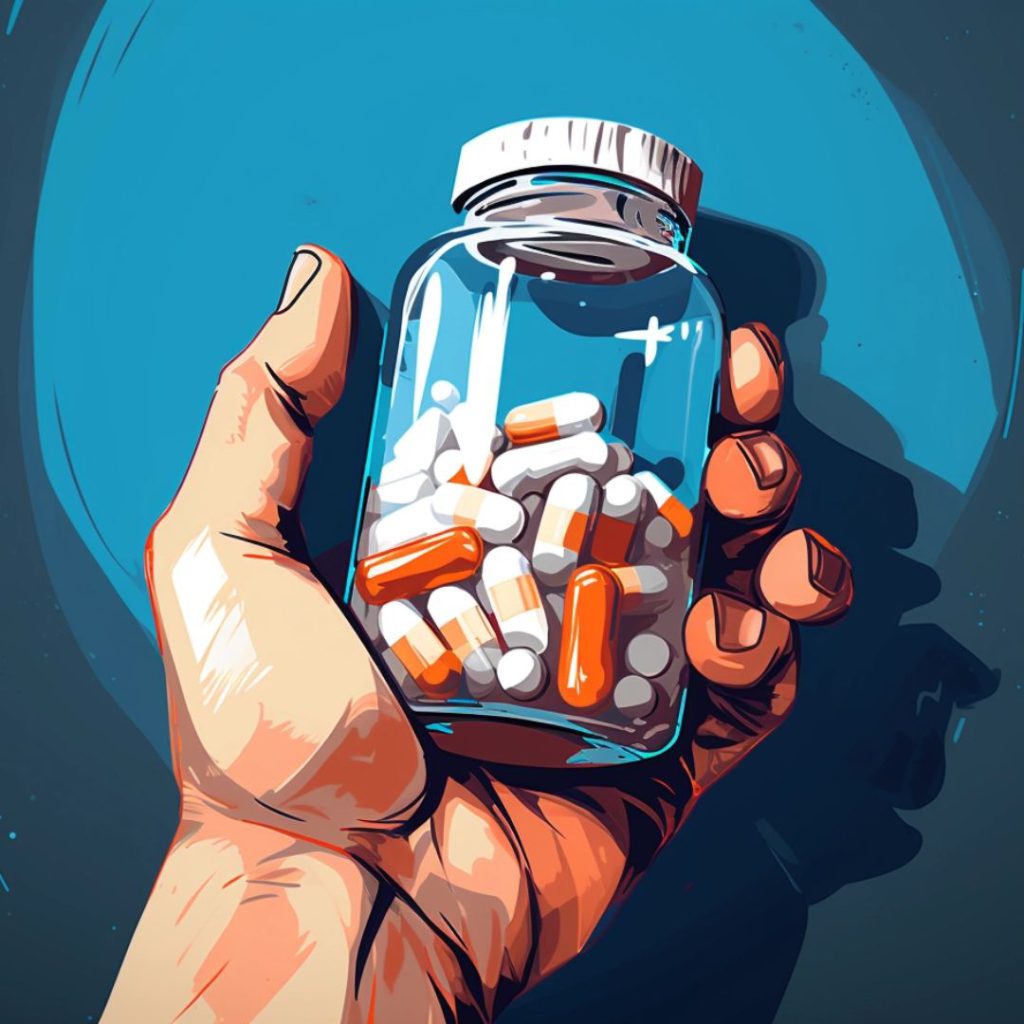
Have you ever wondered why some personality types seem more prone to addiction than others? The Myers-Briggs Type Indicator (MBTI) is a popular tool for understanding personality types and how they interact with the world. When it comes to addiction, certain personality traits and tendencies can make individuals more susceptible to substance abuse and dependency. Understanding the correlation between MBTI and addiction can provide valuable insights into prevention and treatment strategies.
Addiction and Substance Abuse Triggers
Addiction is a chronic condition characterized by compulsive substance use despite adverse consequences, causing both physical and mental health deterioration. The consequences include strained relationships, legal issues, financial stress, social isolation, and an increased risk of overdose.
There are various triggers that can lead to MBTI addiction or substance abuse:
- Genetic predisposition
- Environmental influences such as a stressful environment, peer pressure, or exposure to substance use
- Mental health conditions like depression, anxiety, or trauma
- Social isolation
- Early exposure at a young age
- Neurological factors
| Discover: The Relationship between MBTI and Mental Illness
The Link Between MBTI Types and Addiction

Before exploring which MBTI types are more susceptible to addiction and substance use, let’s examine how MBTI personality traits can influence the likelihood of addiction;
- Impulsivity and Risk-Taking: Individuals with high levels of impulsivity and a propensity for risk-taking may be more susceptible to addiction. Their impulsive behavior can lead to decisions without considering consequences, making substance abuse a likely outcome.
- Stress Coping Mechanisms: Some individuals turn to addictive substances or behaviors as a means of coping with stress. When faced with stressful situations, they may lack healthy coping mechanisms and instead resort to substances like drugs, alcohol, or behaviors such as gambling or excessive gaming to alleviate stress temporarily. Over time, this reliance can develop into an addiction.
- Sensation-Seeking Behavior: People with a high inclination towards sensation-seeking behavior often seek novel, thrilling experiences. This desire for excitement and stimulation may lead them to experiment with substances or activities that provide immediate pleasure or intense sensations, potentially leading to addiction due to the reinforcing nature of these experiences.
- Low Self-Esteem and Dependency: Individuals with low self-esteem might turn to addictive substances or behaviors as a way to self-medicate or fill an emotional void. Dependency on substances or certain behaviors can serve as a temporary escape from negative feelings, providing a false sense of relief or confidence. Over time, this reliance can exacerbate the underlying issues and foster addiction.
- Personality Disorders: Certain personality disorders, such as borderline personality disorder, antisocial personality disorder, or narcissistic personality disorder, can increase the risk of addiction. These disorders often involve difficulties in managing emotions, impulsivity, and a tendency towards self-destructive behaviors. Individuals with these disorders might turn to substances or addictive behaviors as a way to manage their symptoms or regulate their emotions.
- Perfectionism: Individuals with perfectionistic tendencies might turn to substances or addictive behaviors as a way to cope with the pressure of constantly trying to meet high standards. The stress of striving for perfection can lead to using substances or engaging in addictive behaviors as a form of escape or self-medication.
- Difficulty in Delayed Gratification: Related to impulse control, some people have difficulty delaying gratification. They seek instant rewards and might turn to addictive substances or behaviors that provide immediate pleasure or relief, disregarding the potential negative consequences in the future.
- Non-Conformity: Some individuals who have a rebellious or non-conformist nature might be drawn to addictive substances or behaviors as a way of defying social norms or rules. This tendency towards defiance can lead them to experiment with substances or activities seen as risky or prohibited.
- Social Isolation or Loneliness: People who feel socially isolated or lonely may turn to addictive behaviors as a means of filling the void or seeking connection. Substance abuse or addictive activities can temporarily alleviate feelings of loneliness, but this reliance can lead to addiction as a way of coping with these emotions.
| Suggestion: ADHD and MBTI | A Comprehensive Overview
MBTI Types More Prone to Addiction
While personality traits can influence susceptibility to addiction, this is a generalization and not an absolute indicator. Individual experiences, environment, and various other factors significantly contribute to addictive behaviors. The following table provides a hypothetical overview of how certain traits associated with each MBTI type might contribute to a potential susceptibility to addiction:
| MBTI Type | Likelihood of Addiction | Traits Leading to Addiction |
| ISTJ | Low | Perfectionism, stress coping through routine |
| ISFJ | Low | Self-sacrifice, stress coping through habit |
| INFJ | Low | Idealism, stress coping through avoidance |
| INTJ | Low | Perfectionism, seeking intellectual stimulation |
| ISTP | Moderate | Risk-taking, seeking immediate experiences |
| ISFP | Low | Sensitivity to experience, avoiding conflict |
| INFP | Low | Idealism, seeking emotional fulfillment |
| INTP | Low | Analytical, seeking knowledge and understanding |
| ESTP | High | Sensation-seeking, thrill-seeking behavior |
| ESFP | High | Sensitivity to experience, seeking excitement |
| ENFP | Moderate | Novelty-seeking, emotional intensity |
| ENTP | Moderate | Curiosity, risk-taking in intellectual pursuits |
| ESTJ | Low | Focus on structure, risk-averse behavior |
| ESFJ | Low | Need for harmony, avoiding conflict |
| ENFJ | Low | Empathy-driven, seeking social validation |
| ENTJ | Low | Focus on goals, strategic planning |
Gain valuable insights about the relationship between depression and MBTI personality types.
Read the comprehensive guide below:
MBTI Types and Depression | Who Struggles Most?
Strategies for MBTI Addiction Relief

While certain MBTI personality traits might predispose individuals to a higher risk of addiction, there are strategies and interventions that can be employed to help mitigate these tendencies:
- Mindfulness meditation, deep breathing exercises, and stress management practices can assist individuals in reducing stress levels, which in turn can lower the likelihood of turning to addictive behaviors.
- Encourage the cultivation of healthy coping mechanisms such as exercising, engaging in hobbies, journaling, or seeking social support. These activities can help individuals manage stress and emotions.
- Encouraging positive self-talk, setting achievable goals, and focusing on personal strengths can help individuals build resilience against addictive tendencies driven by low self-esteem.
- Therapy and counseling, Cognitive-behavioral therapy (CBT) or dialectical behavior therapy (DBT) , can be immensely beneficial in addressing underlying issues and learning healthier ways to cope with emotions, stress, and impulsivity.
- Foster strong connections with family, friends, or support groups. Having a supportive network can provide encouragement, guidance, and a sense of belonging.
- Establishing routines and boundaries can help individuals with certain personality traits prone to addiction, such as impulsivity or sensation-seeking behavior.
Learn more…
HealWiser’s Last Piece of Advice
The likelihood of MBTI addiction and substance use are speculative and based on general tendencies associated with each MBTI type. They don’t serve as a guarantee that individuals of a specific type will develop addiction, given that numerous other elements contribute to the emergence of addictive behaviors. The link between MBTI and addiction, akin to correlations between MBTI and mental health conditions, is not conclusive or straightforward. The article’s intention was to highlight potential inclinations based on traits commonly associated with each MBTI type.
If you or someone you know is grappling with addiction, irrespective of their personality type, it’s crucial to prioritize seeking professional assistance. Professionals can offer personalized strategies to enhance mental well-being.
Sharing your experiences can provide valuable insights and emotional support. So…
…share your experience with Heal Wiser and others in the comments section below this post.






